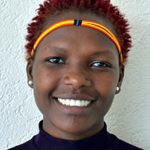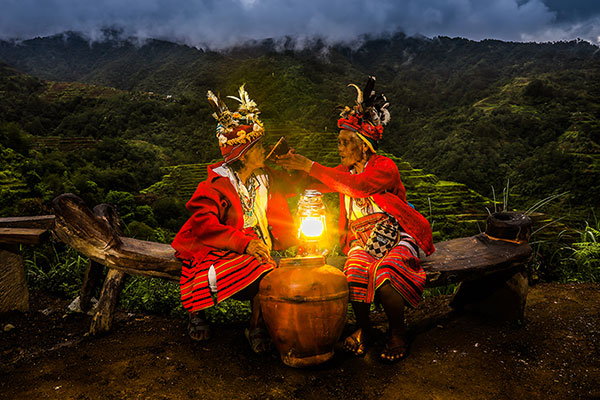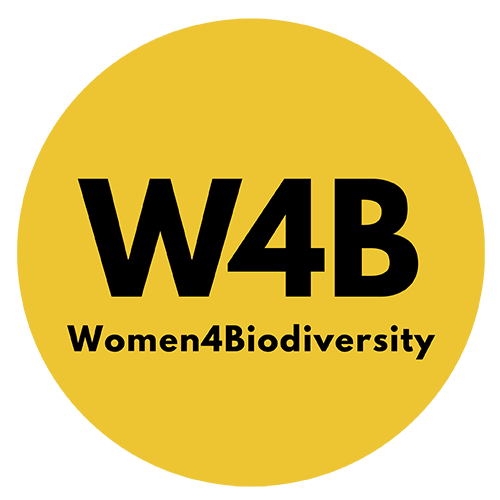TEXT AND COVER PHOTO BY MILKA CHEPKORIR
Cover photo: Amid threats like forceful eviction, Sengwer Berur women lead the tree planting in Kabolet Forest in Kenya.
An investment in indigenous women is an investment in our planet. Indigenous Peoples around the planet play a key role in taking care of the world’s biodiversity for the good of all humanity. Indigenous Peoples’ territories are rich with biodiversity, and we nurture harmony between our existence and theirs. We observe various regulations in traditional laws and rules, and we pass this knowledge through generations. Each generation then takes up its roles to keep the planet in balance.
Through and through, indigenous women have played massive roles in passing on this knowledge and systems. We interact more with resources in our territories than our male counterparts. We derive from our environments our daily deliverables of water, food, herds, and more to our families. To enable a collection for the following days and weeks, we have had to collect these resources sustainably. While some of the sustainable knowledge systems are taught to us by the males of our communities, we women do most of the real work.
Now, when discussions on who plays a more effective role in the preservation of biodiversity and its sustainable use as needed for the well-being of the communities, it is good for the world’s populations to realize the need to invest at the very points of impact. These points of impact are in communities, and it is even more impactful to involve indigenous women who have for ages offered services with less to no recognition.
Resources, including financing, should be directed to supporting indigenous women first to gather data and shed light on the massive roles they play in conserving biodiversity, as well as being the world’s universities and channels of knowledge transfers. These, however, happen without recognition or appreciation.
Governments, conservation organizations and other stakeholders are working on the implementation of the Kunming-Montreal Global Biodiversity Framework after its adaptation in December 2022 at the Fifteenth Meeting of the Conference of Parties to the Convention on Biological Diversity (CBD COP 15) in Montreal, Canada. We indigenous women hope that the funding strategies to be adopted by different governments will be geared towards supporting indigenous women under the gender target of the framework (Target 23).
As we commemorate this year’s Earth Day, we indigenous women call all stakeholders to realize the common value that women and the earth share, which is to nurture life. And, in this critical moment after COP 15 when the earth’s ability to support life is being given more attention through plans for biodiversity conservation, it is crucial to recognize and appreciate the nurturing and support for life both women and the earth play. To play these roles better, women need resources to upscale their skills and better share their knowledge and practices with others in their communities and societies.
Women and the earth both nurture. Thus, investing in women – especially indigenous women – is investing in the planet, and in turn, investing in life.

Milka is a member of the Sengwer Indigenous Peoples of Cherang’any Hills, Kenya. For more than seven years, she has been working for the recognition of her community’s ancestral land rights. Currently, Milka coordinates Defending Territories of Life at the ICCA Consortium. In 2020, she was an Environmental Justice Fellow at Natural Justice, Kenya. She has also Coordinated Community Land Action Now (CLAN), Kenya for 3 years. Her interest in gender inclusion has informed her work with community leaders and women to incorporate gender issues in the collective land rights struggle. She draws her motivation from the desire for justice for Indigenous Peoples and from her training in Anthropology her bachelor’s degree and master’s degree in Gender and Development studies. Milka has represented her community and presented their issues in different UN processes and was an Indigenous Fellow at OHCHR in 2016.


